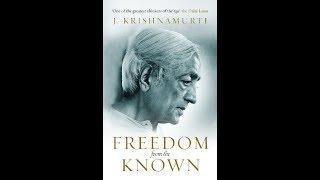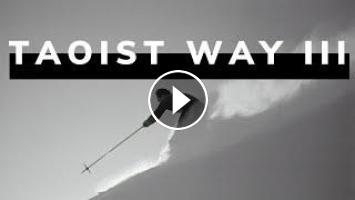Alan Watts - Taoist way III
In the philosophy of the Tao, iIt is said, it’s always being said this is. You read this in every art book about Chinese art that in Chinese painting, man is always seen as in nature rather than dominating it.
then is the great fundamental principle which is called wu-wei, which is not to force anything. I think that’s the best translation . Not doing, not acting, not interfering, but not to force seems to me to hit the nail on the air. Like don’t ever force a lock while you bend the key or break the law you jiggle until it revolves.
There’s a poem which says that when the bird calls. The mountain becomes more mysterious. You imagine for example you’re in a mountain valley and everything is very silent. And suddenly a crow. Squawks somewhere. You don’t know where that crow is, and the little sound emphasizes the silence.
There’s a Chinese poem which puts it this way. It is a poem written by a man who has gone to find a sage in the mountains and the Sage has a little hut at the foot of the mountain and a boy there who is his servant. I asked the boy beneath the pines he said the master’s gone alone herb-gathering somewhere on the Mount. Cloud-hidden, whereabouts unknown.
This is the meaning then, that there is no one who perceives anything, no one who experiences anything there is simply seeing, and experiencing.
Now when we take a stick, the stick has its two ends. They are the terms of the stick, but the ends of the stick do not exist as sort of separate points which encounter each other on the occasion of meeting at a stick.
- Alan Watts ( Alan Watts - Taoist Way II)
#AlanWatts #TaoistWay #Tao #Taoism #wu-wei #mountains #poem #sage #meaning
FAIR USE NOTICE: This Video may contain copyrighted (©) material the use of which has not always been specifically authorized by the copyright owner. Such material is made available to advance understanding of ecological, political, human rights, economic, democracy, scientific, moral, ethical, and social justice issues, etc. It is believed that this constitutes a 'fair use' of any such copyrighted material as provided for in section 107 of the US Copyright Law. In accordance with Title 17 U.S.C. Section 107, this material is distributed without profit to those who have expressed a prior general interest in receiving similar information for research and educational purposes. We believe this video is under fair use because: We educate others in a spiritual form and other forms by just sharing a small part of the entire original material; These videos are transformative in a positive sense with the arts added to the audio to add emotional dimension to the listener experience, and we don't wish any materials used here to bring down the market value of the original content, we hope to promote the market value of the content, by making the content known to new people.
Contact Email : Adityakushwah21@gmail.com
In the philosophy of the Tao, iIt is said, it’s always being said this is. You read this in every art book about Chinese art that in Chinese painting, man is always seen as in nature rather than dominating it.
then is the great fundamental principle which is called wu-wei, which is not to force anything. I think that’s the best translation . Not doing, not acting, not interfering, but not to force seems to me to hit the nail on the air. Like don’t ever force a lock while you bend the key or break the law you jiggle until it revolves.
There’s a poem which says that when the bird calls. The mountain becomes more mysterious. You imagine for example you’re in a mountain valley and everything is very silent. And suddenly a crow. Squawks somewhere. You don’t know where that crow is, and the little sound emphasizes the silence.
There’s a Chinese poem which puts it this way. It is a poem written by a man who has gone to find a sage in the mountains and the Sage has a little hut at the foot of the mountain and a boy there who is his servant. I asked the boy beneath the pines he said the master’s gone alone herb-gathering somewhere on the Mount. Cloud-hidden, whereabouts unknown.
This is the meaning then, that there is no one who perceives anything, no one who experiences anything there is simply seeing, and experiencing.
Now when we take a stick, the stick has its two ends. They are the terms of the stick, but the ends of the stick do not exist as sort of separate points which encounter each other on the occasion of meeting at a stick.
- Alan Watts ( Alan Watts - Taoist Way II)
#AlanWatts #TaoistWay #Tao #Taoism #wu-wei #mountains #poem #sage #meaning
FAIR USE NOTICE: This Video may contain copyrighted (©) material the use of which has not always been specifically authorized by the copyright owner. Such material is made available to advance understanding of ecological, political, human rights, economic, democracy, scientific, moral, ethical, and social justice issues, etc. It is believed that this constitutes a 'fair use' of any such copyrighted material as provided for in section 107 of the US Copyright Law. In accordance with Title 17 U.S.C. Section 107, this material is distributed without profit to those who have expressed a prior general interest in receiving similar information for research and educational purposes. We believe this video is under fair use because: We educate others in a spiritual form and other forms by just sharing a small part of the entire original material; These videos are transformative in a positive sense with the arts added to the audio to add emotional dimension to the listener experience, and we don't wish any materials used here to bring down the market value of the original content, we hope to promote the market value of the content, by making the content known to new people.
Contact Email : Adityakushwah21@gmail.com
- Category
- Alan Watts
- Tags
- Alan Watts, Philosophies of Asia, alan
Be the first to comment





